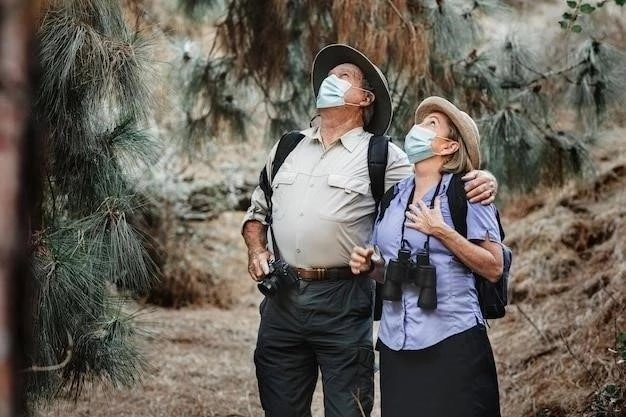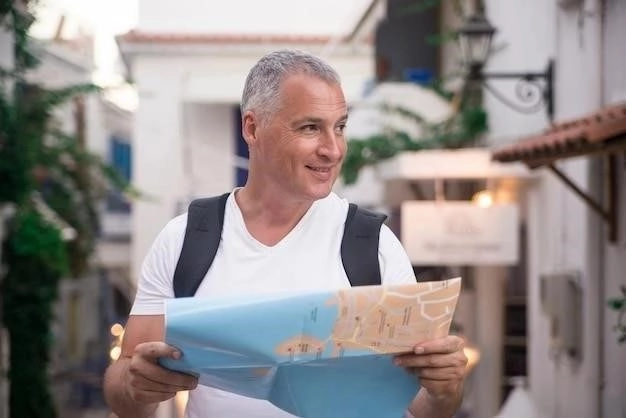
Planning Your Trip
Embarking on a journey to Grenada, the “Spice Isle” of the Caribbean, promises a captivating blend of natural beauty, rich history, and vibrant culture. To ensure a seamless and enriching travel experience, meticulous planning is essential. Begin by determining the purpose of your visit, whether it’s to bask on pristine beaches, explore lush rainforests, or delve into the island’s intriguing past. This will guide your choice of accommodation, activities, and itinerary.
Next, research the best time to visit Grenada based on your preferences. The island enjoys a tropical climate year-round, but the dry season, from December to May, offers the most favorable weather conditions for outdoor adventures. Consider the duration of your stay and allocate sufficient time to immerse yourself in the diverse offerings of Grenada. Create a preliminary itinerary, outlining the key attractions, activities, and destinations you wish to experience. This will serve as a roadmap for your journey and can be adjusted as needed.
Visas & Entry Requirements
Prior to your departure for Grenada, it is imperative to ensure you meet the necessary entry requirements. Citizens of most countries are granted visa-free entry for a specific period, typically ranging from 30 to 90 days, for tourism purposes. However, it is crucial to verify the specific visa policy based on your nationality. To confirm your eligibility for visa-free travel or to determine the appropriate visa category, consult the official website of the Grenada Immigration Department or contact the nearest Grenadian embassy or consulate in your country of residence.
Upon arrival in Grenada, you will be required to present a valid passport with at least six months of remaining validity beyond your intended stay. Additionally, you must provide proof of onward or return travel arrangements, such as a confirmed airline ticket. Immigration officials may also request evidence of sufficient funds to cover your expenses during your stay, such as bank statements or credit card details. It is advisable to carry these documents with you throughout your trip.
Getting There & Getting Around
Reaching the shores of Grenada is conveniently accessible via air and sea. Maurice Bishop International Airport (GND), situated in the south of the island near the capital city of St. George’s, serves as the primary gateway for international arrivals. Numerous major airlines offer direct and connecting flights to Grenada from cities across North America, Europe, and the Caribbean.
Once you’ve arrived, navigating the island is a breeze with various transportation options available. Taxis are readily accessible at the airport and in major towns, offering a comfortable means of getting around, particularly for shorter distances. Car rentals are another popular choice, providing flexibility for exploring the island at your own pace. However, driving in Grenada can be challenging for some visitors due to left-hand traffic and mountainous terrain.
Best Time to Visit
Grenada, with its consistently warm temperatures and tropical climate, welcomes visitors year-round. However, the optimal time to experience the island’s allure depends on your priorities and desired activities. The dry season, spanning from December to May, offers the most favorable weather conditions for those seeking sunshine, calm seas, and outdoor adventures. During these months, rainfall is minimal, and the humidity is lower, making it ideal for exploring rainforests, lounging on beaches, and enjoying watersports.
For travelers seeking a more secluded and budget-friendly experience, the shoulder seasons, from April to May and September to November, present an attractive option. During these periods, you’ll encounter fewer crowds and potentially more affordable accommodation rates. While there is a slight increase in rainfall, it is often in the form of brief showers that do little to dampen the island’s spirit.
Accommodation
Grenada presents a diverse array of accommodation options, catering to a range of preferences and budgets. Whether you seek the seclusion of a luxurious beachfront resort, the charm of a boutique guesthouse, or the affordability of a self-catering apartment, you’ll find ample choices throughout the island. For those desiring a quintessential Caribbean experience, the Grand Anse area boasts a concentration of upscale resorts, offering world-class amenities, pristine beaches, and stunning ocean views.
Travelers seeking a more intimate and authentic stay can choose from numerous boutique hotels and guesthouses scattered across the island. These establishments often feature unique architectural styles, personalized service, and a closer connection to the local culture. For budget-conscious travelers or those seeking a home-away-from-home experience, self-catering apartments and villas are readily available. These options provide flexibility in terms of dining and often come equipped with kitchens or kitchenettes, allowing you to prepare your own meals.
Exploring Grenada
Grenada, affectionately dubbed the “Spice Isle,” beckons travelers with its alluring blend of natural wonders, cultural treasures, and historical intrigue. Embark on an exploration of this captivating island, where verdant rainforests cascade down to pristine beaches, and the aroma of nutmeg, cinnamon, and cloves wafts through the air. Begin your journey in St. George’s, the vibrant capital city, with its picturesque harbor, colorful colonial architecture, and bustling market square.
Venture beyond the capital to uncover Grenada’s natural splendor. Hike through the rainforest-clad slopes of Grand Etang National Park, home to cascading waterfalls, volcanic crater lakes, and a rich diversity of flora and fauna. Indulge in the tranquility of Annandale Falls, where you can cool off in the refreshing waters or simply soak in the serene ambiance. Discover hidden coves and secluded beaches along the island’s coastline, each offering its unique charm and opportunities for relaxation or watersports.

St. George’s: The Capital City

Nestled amidst a picturesque horseshoe-shaped harbor, St. George’s, the capital of Grenada, captivates visitors with its vibrant blend of history, culture, and Caribbean charm. Stroll along the waterfront promenade, Carenage, and marvel at the colorful colonial-era buildings, many of which house charming shops, restaurants, and historical landmarks. Explore the narrow, winding streets, where vibrant markets overflow with exotic spices, tropical fruits, and local crafts.
Ascend to Fort George, a historic fort dating back to the 18th century, offering panoramic views of the city, harbor, and surrounding coastline. Delve into Grenada’s maritime heritage at the Grenada National Museum, housed in a former French barracks and showcasing artifacts from the island’s rich history. Immerse yourself in the local culture at the Saturday Market, a vibrant hub of activity where vendors peddle fresh produce, spices, handicrafts, and traditional Grenadian delicacies.
Grand Anse Beach & Watersports
Grand Anse Beach, renowned as one of the Caribbean’s most picturesque stretches of coastline, epitomizes Grenada’s idyllic beauty. Stretching for two miles along the island’s southwestern coast, this pristine beach captivates with its powdery white sand, crystal-clear turquoise waters, and lush greenery. Grand Anse Beach offers an array of watersports activities for those seeking aquatic adventures. Dive into the azure depths and discover a vibrant underwater world teeming with coral reefs, colorful fish, and even shipwrecks.
Embark on a snorkeling excursion to observe the marine life in shallower waters or try your hand at stand-up paddleboarding or kayaking for a unique perspective of the coastline. For a truly exhilarating experience, set sail on a catamaran cruise along the coast, offering opportunities for swimming, snorkeling, and soaking up the sun. After a day of watersports, unwind at one of the beachside restaurants or bars, sipping on a refreshing rum punch while enjoying the stunning sunset views.
Historical Sites & Landmarks
Grenada’s history unfolds as you explore its captivating historical sites and landmarks, each bearing witness to the island’s rich and often turbulent past. Journey back in time at Fort Frederick, perched atop Richmond Hill and offering commanding views of St. George’s. Built by the French in the 18th century, this well-preserved fort played a pivotal role in Grenada’s colonial history. Delve into the depths of Grenada’s colonial past at Fort Matthew, a former British stronghold strategically positioned on a hilltop overlooking the capital.

Explore the fort’s ramparts, tunnels, and barracks, imagining the lives of the soldiers stationed there centuries ago. Discover the remnants of Grenada’s sugar-producing heritage at River Antoine Estate, a still-operational rum distillery dating back to the 18th century. Witness the traditional methods of sugarcane processing and rum production, and sample the estate’s potent rum, a testament to Grenada’s enduring connection to its colonial past.
Nature & Wildlife
Beyond its stunning beaches, Grenada boasts a rich tapestry of nature and wildlife, inviting exploration and discovery. Venture into the island’s lush interior, where verdant rainforests cloak volcanic peaks and cascading waterfalls create a symphony of sound. Hike or bike through the trails of Grand Etang National Park, home to a diverse array of flora and fauna, including the elusive Mona monkey, the vibrantly colored Grenada Dove, and a multitude of tropical bird species.
Discover the enchanting beauty of Annandale Falls, where you can take a refreshing dip in the cool waters or simply marvel at the cascading torrent. For a truly immersive experience, embark on a guided nature walk through the rainforest, where knowledgeable guides will reveal the secrets of Grenada’s flora and fauna. Encounter exotic orchids, towering mahogany trees, and listen for the calls of tropical birds as you immerse yourself in the island’s natural wonders.
Grenadian Culture & Cuisine
Grenadian culture is a vibrant tapestry woven with African, British, and French influences, creating a unique and captivating heritage. The warmth and hospitality of the Grenadian people are renowned, and visitors are embraced with open arms. Music and dance are integral parts of Grenadian life, with rhythms such as calypso, soca, and reggae filling the air, especially during festivals and celebrations.
Crafted with a fusion of flavors reflecting the island’s diverse cultural heritage, Grenadian cuisine tantalizes taste buds with its aromatic spices, fresh seafood, and tropical fruits. Savor the national dish, “Oil Down,” a flavorful stew made with breadfruit, salted meat, coconut milk, and an array of spices, cooked slowly over an open fire. Indulge in fresh seafood delicacies, such as grilled lobster, spicy shrimp creole, and catch-of-the-day specials.
Local Cuisine & Dining
Grenada’s culinary landscape reflects its rich cultural heritage, offering a delectable fusion of flavors that tantalize the taste buds. From upscale restaurants to casual beachside eateries, the island presents a diverse range of dining experiences to satisfy every palate. Indulge in the national dish, “Oil Down,” a flavorful stew made with breadfruit, salted meat, coconut milk, and a medley of spices, traditionally cooked slowly over an open fire. This hearty dish embodies the essence of Grenadian cuisine.
Savor the freshest catches of the day, such as grilled lobster, spicy shrimp creole, or a classic fish fry, seasoned with local herbs and spices. For a true taste of Grenadian street food, sample “Roti,” a savory Indian-inspired flatbread filled with curried chicken, goat, or vegetables. “Doubles,” a popular Trinidadian import, features fried flatbread topped with curried chickpeas, chutney, and pepper sauce.

Festivals & Events
Grenada’s calendar bursts with vibrant festivals and events throughout the year, showcasing the island’s rich culture, infectious energy, and joie de vivre. If you’re planning a trip to Grenada, consider timing it with one of these captivating celebrations. Immerse yourself in the electrifying rhythms of Carnival, Grenada’s most anticipated cultural extravaganza. Held annually on the second Monday and Tuesday in August, Carnival transforms the island into a kaleidoscope of colors, music, and dance.
For a taste of Grenada’s musical heritage, don’t miss the Carriacou Parang Festival, held in December. This unique event celebrates the island’s French heritage with traditional Christmas music, featuring instruments like the cuatro, violin, and tambourine. Food lovers should indulge in the Grenada Chocolate Festival, a celebration of the island’s thriving cocoa industry.
Music & Nightlife
As the sun sets over Grenada, the island awakens with the vibrant rhythms of Caribbean music, inviting visitors to embrace the infectious energy of its nightlife. From lively beach bars to pulsating nightclubs, Grenada offers a diverse array of options to suit every taste and preference. For those seeking a laid-back evening, head to the Grand Anse area, where beachfront restaurants transform into lively hubs with live music and dancing under the stars.
Sway to the sounds of reggae, calypso, and soca, sip on tropical cocktails, and enjoy the company of locals and fellow travelers alike. In St. George’s, the historic capital city, cozy pubs and rum shops offer a more intimate setting to enjoy live music, often featuring local bands playing traditional Grenadian music. For a true taste of Grenadian nightlife, venture out on a Friday night for “Fish Friday” in Gouyave.
Practical Information
To ensure a seamless and enjoyable trip to Grenada, it’s helpful to be aware of some practical information before you depart. The local currency in Grenada is the Eastern Caribbean Dollar (EC$), but US dollars are widely accepted. Credit cards are commonly used in most establishments, although smaller businesses may prefer cash. It’s advisable to have some local currency on hand for smaller purchases and transportation.
The official language of Grenada is English, although you may also encounter some local dialects and accents. The island operates on Atlantic Standard Time (AST), which is four hours behind Coordinated Universal Time (UTC-4). Grenada has a reliable telecommunications infrastructure, with mobile phone coverage available throughout the island.

Health & Safety
Grenada is generally a safe and welcoming destination for travelers, but it’s always advisable to take necessary precautions to ensure your well-being. Before embarking on your trip, it’s recommended to consult with your healthcare provider regarding any necessary vaccinations or health precautions. It’s also advisable to pack a basic first-aid kit containing essential medications, insect repellent, sunscreen, and any personal prescriptions.
As with any tropical destination, it’s important to stay hydrated by drinking plenty of water, especially when engaging in outdoor activities. The tap water in Grenada is generally safe to drink, but bottled water is widely available. When exploring the island, be mindful of your surroundings, especially at night. It’s best to avoid walking alone in poorly lit areas and to use reputable transportation options.

Currency & Money
The official currency of Grenada is the Eastern Caribbean Dollar (EC$), which is pegged to the US dollar at a rate of EC$2.70 to US$1.00. US dollars are widely accepted throughout the island, but you’ll usually receive change in EC$. Credit cards, particularly Visa and Mastercard, are accepted at most hotels, restaurants, and larger establishments. However, smaller businesses, local markets, and vendors may prefer cash, so it’s advisable to have some EC$ on hand.
ATMs are readily available in major towns and cities, allowing you to withdraw cash in EC$. Banks in Grenada generally operate from Monday to Friday, from 8:00 AM to 3:00 PM, with some branches offering extended hours on certain days. It’s recommended to notify your bank and credit card companies of your travel plans to Grenada to avoid any issues with transactions.
Language & Communication
The official language of Grenada is English, a legacy of its history as a British colony. However, English is often spoken with a distinct Grenadian accent and infused with local expressions, which visitors may find charming and endearing. While English is widely spoken and understood throughout the island, particularly in tourist areas, you may also encounter Grenadian Creole, a French-based dialect spoken by some locals.
Grenada has a reliable telecommunications infrastructure, with mobile phone coverage available in most areas. The country code for Grenada is +1 (473), and you can use your mobile phone if it’s compatible with the local networks or purchase a local SIM card upon arrival. Internet access is readily available in hotels, cafes, and internet cafes in major towns and cities.
Tipping & Etiquette
In Grenada, tipping is customary for services rendered in the tourism industry. It is a gesture of appreciation for good service and helps to supplement wages. In restaurants, a service charge of 10% is typically added to the bill. However, it is still customary to leave an additional 5-10% for exceptional service. For taxi drivers, rounding up the fare to the nearest dollar or adding a small tip of 10% is appropriate.
When interacting with locals, it’s important to be respectful and courteous. Grenadians are generally warm and welcoming people who appreciate politeness. It’s customary to greet people with a friendly “Good morning,” “Good afternoon,” or “Good evening,” depending on the time of day. Addressing people by their titles, such as “Mr.” or “Ms.,” followed by their last name, is considered polite, especially in formal settings.










